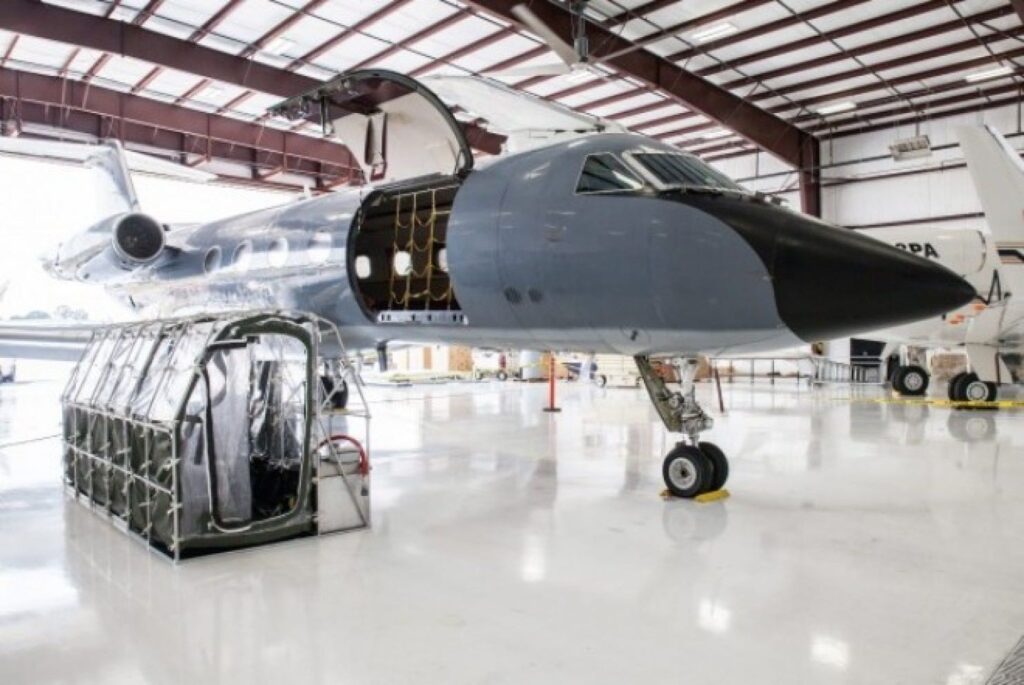TransCom Rushes Buy Of Ebola Isolation Units; 60 Days From Idea To Test
Posted on
 WASHINGTON: The Pentagon’s Transportation Command — the folks who move most everything for the military from Point A to Point B — are testing a new isolation unit to fit in a C-17 or C-130 aircraft, just 60 days after issuing the requirement.
WASHINGTON: The Pentagon’s Transportation Command — the folks who move most everything for the military from Point A to Point B — are testing a new isolation unit to fit in a C-17 or C-130 aircraft, just 60 days after issuing the requirement.
The head of TransCom, Gen. Paul Selva, told reporters this morning at a Defense Writers Group breakfast that the command realized it needed the units in case anyone in the military was exposed to or came down with Ebola and needed evacuation. Obviously, these units can be used for everything from tuberculosis to the Marburg virus (a relative of Ebola’s) but they were built in response to the Ebola crisis afflicting West Africa.
Selva issued a Joint Urgent Operational Need (known as a JUON) for the units, 12 of which are planned. So far, the one company that built the larger system now being used by the State Department on contract, a firm with the unlikely name of Production Products of St. Louis, has been working on the system. The photo above shows the single unit, which is larger than the new units and can handle only one patient at a time.
The systems are standardized for us with pallets so they can easily be moved and secured on aircraft.
Interestingly, Selva said TransCom worked with the Defense Threat Reduction Agency, which handles biological warfare issues, and the Department of Health and Human Services as it developed the requirements.
“We have the capacity to isolate a single person and that capacity was designed exclusively to handle a SARS patient,” the general said. Believe it or not, the entire US military only had one unit capable of something similar, but it was designed to carry one person suffering from Severe Acute Respiratory Syndromes (SARS).
The new units can carry two patients on a stretcher and four in chairs. They can be linked to allow access for a care giver — properly suited and otherwise protected, of course.
In other news, Selva told me that TransCom — under persistent probes by China, Russia, and criminals, among others — has created a Joint Cyber Center to monitor and block cyber attacks.
“Typically, the attacks we are most concerned about are probes that are doing intelligence gathering,” he said. Countries look at the architecture of our system so they can attack later” — and that has to be prevented. Selva took 40 people from other areas of his command to beef up cybersecurity, which meant no new money was required.
If attacked, TransCom would not counter, he said. That would be handed over to Cyber Command. Instead, TransCom would shut down its network, sometime it has practiced repeatedly. Selva said TransCom has shut down their network for several hours at a time — long enough to make all his people very uncomfortable — and managed the military’s global transportation using those old timey things called telephones.
To help ensure the military networks aren’t infected through its many commercial partners, Selva said new contracts require companies to notify TransCom whenever their networks suffer any intrusion.
The general also said he was “cautiously optimistic” that Boeing would deliver its first tranche of 18 KC-46 tankers on time in 2017. The company is supposed to fly its first KC-46 — without a refueling boom — by the end of the year. Tick, tick, tick.
Subscribe to our newsletter
Promotions, new products and sales. Directly to your inbox.
